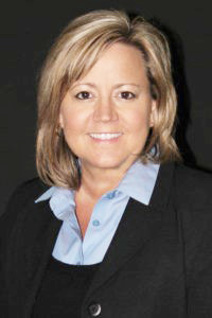Awareness Through CTE
August 16, 2019
By Dr. DeAnna Little, ECMC Foundation Fellow

I recently had the opportunity to visit with Dr. Margaret Ellibee, Chancellor of University of Arkansas Pulaski Technical College (UA-PTC) in Little Rock, Arkansas. I was fortunate to be paired with Dr. Ellibee for the next year as she has agreed to serve as my mentor as a part of my journey with the Postsecondary Leadership Success Program at ACTE - Sponsored by the ECMC Foundation.
Dr. Ellibee is beginning her 8th year leading UA-PTC. She brought a wealth of expertise to the position, having served in educational leadership roles in several other Midwestern states including Iowa, Oklahoma and Wisconsin.
My recent conversation with Dr. Ellibee focused on program quality and accountability. Key performance indicators and quantitative data drive all decisions at UA-PTC, from annual budgeting to program expansion and closure.
On a statewide level, UA-PTC follows the standards set by the Arkansas Department of Higher Education and they go through an extensive review process every four years which aligns with the timing for UA-PTC’s strategic plan. On a local level, UA-PTC has key performance measures they track annually such as default rates, graduation rates, retention rates, and course success measures. Annual program reviews are conducted to ensure they are offering the best possible learning experience for their students. UA-PTC leadership also confirms the return on their investment for every program they offer with these yearly reviews to ensure standards meet external accrediting entities criteria for quality. Most of the technical programs offered at UA-PTC are accredited by state or national entities, such as the Arkansas State Board of Nursing, the National Automotive Technician Foundation, the Federal Aviation Administration, the American Culinary Federation Education Foundation Accrediting Commission, the Commission on Dental Accreditation of the American Dental Association and many others.
As part of my work with the fellowship, one of my goals is to bring awareness to the ACTE’s Quality CTE Program of Study Framework. I asked Dr. Ellibee if she was familiar with ACTE’s framework. She replied saying yes and that it is definitely something to look at for CTE programs. For postsecondary, Dr. Ellibee could envision using the ACTE quality framework as a foundation along with the state or national accreditation entities mentioned above. Many educators who teach in technical areas come into the profession with limited educational knowledge of terminology, processes and performance measures. ACTE quality framework would be a great tool to provide faculty to enable them to understand all of the elements that contribute to high quality CTE programs and track their performance.
I am looking forward to my continued discussions over the next year with Dr. Ellibee. She has a passion for education and is an exceptional leader. She remembers the mentors who influenced her career path and is genuinely interested in helping others learn and grow. I’m confident she develops her staff’s strengths and pushes them out of their comfort zones, as she has done both for me in the short time we have spent together. Due to the recent flooding in both our home states, our face-to-face meeting was cancelled in May due to parts of I-40 being shutdown. I’m looking forward to the opportunity to visit with Dr. Ellibee in person and tour UA-PTC this summer. Stay tuned for my first-hand experience visiting UA-PTC coming soon.
About the ECMC Foundation Fellow
DeAnna Williams is the Director of Instruction at Meridian Technology Center. She is an ECMC Foundation Fellow of the Postsecondary Leadership Success Program (PLSP) at ACTE – Sponsored by the ECMC Foundation. The program is part of ECMC Foundation’s CTE Leadership Collaborative Initiative.
